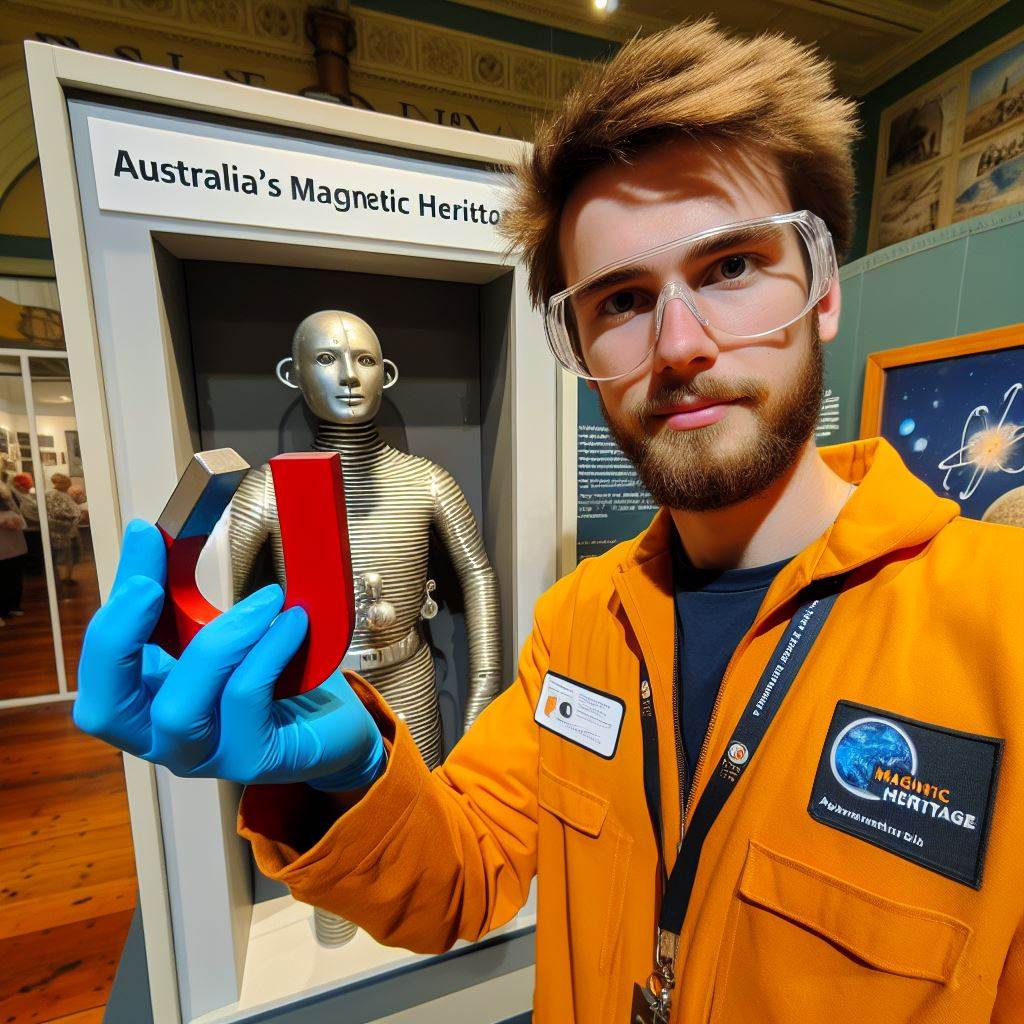Introduction
The climate research field in Australia provides an overview of the current state of research and advancements.
Climate research plays a crucial role in addressing environmental challenges, such as climate change and its impacts.
The purpose of this blog post is to explore the career opportunities and pathways in climate research in Australia.
Overview of climate research field in Australia
Climate research is a dynamic and rapidly evolving field in Australia, with scientists and researchers constantly striving to understand the complex mechanisms driving climate patterns.
This field encompasses various disciplines, including meteorology, climatology, oceanography, and ecology, providing a comprehensive understanding of the Earth’s climate system.
Importance of climate research in addressing environmental challenges
The importance of climate research cannot be underestimated, particularly in the context of addressing environmental challenges.
By studying climate patterns and their changes, researchers can contribute to mitigating and adapting to climate change, developing strategies for sustainable resource management, and protecting vulnerable ecosystems and communities.
Purpose of the blog post
In this blog post, we will delve into the diverse career options available within the climate research field in Australia.
From conducting fieldwork and collecting data to analyzing and modeling climate systems, professionals in this domain play a vital role in advancing knowledge and informing policy decisions.
Moreover, we will explore the educational pathways and qualifications required for a successful career in climate research.
With a growing demand for skilled climate scientists, this post aims to provide guidance and insights for aspiring individuals passionate about studying and understanding the Earth’s climate.
Whether you aspire to work for research institutions, government agencies, or non-profit organizations, a career in climate research offers numerous opportunities to make a positive impact on the planet.
Stay tuned for our upcoming section, as we dive deeper into specific career paths and highlight the exciting prospects within this influential field.
Types of Climate Research Careers in AU
In Australia, there are several types of climate research careers that individuals can pursue.
These careers involve different roles and responsibilities but are ultimately focused on understanding and mitigating the impact of climate change.
Scientist
One career option is to become a scientist in climate research. Scientists in this field are responsible for conducting experiments and fieldwork to gather essential climate data.
They carefully analyze this data and interpret the results to understand the complex processes that drive climate change. Once their research is complete, scientists publish their findings in scientific journals to contribute to the broader body of climate knowledge.
Meteorologist
Another exciting career path within climate research is meteorology. Meteorologists specialize in studying weather patterns and climate phenomena.
They use their expertise to forecast and provide climate-related information to the public. By analyzing climate data, meteorologists help improve weather predictions and enable individuals and organizations to make informed decisions regarding the impact of climate change on their daily lives and long-term plans.
Environmental Consultant
Environmental consulting is another crucial climate research career.
The Environmental consultants assess the environmental impact of various projects that may contribute to climate change.
They work closely with clients to develop strategies that mitigate the effects of climate change on ecosystems, such as promoting sustainable practices and adhering to environmental regulations.
By advising clients on sustainable practices, environmental consultants play a vital role in shaping policies and mitigating the negative effects of climate change.
These career options demonstrate the diversity and importance of climate research in Australia. Whether working as a scientist, meteorologist, or environmental consultant, individuals can make a meaningful contribution to understanding and addressing climate change.
Through their work, these professionals play a significant role in advancing knowledge, improving predictions, and developing strategies to mitigate the impact of climate change on the environment and society.
Your Personalized Career Strategy
Unlock your potential with tailored career consulting. Get clear, actionable steps designed for your success. Start now!
Get StartedBasically, pursuing a career in climate research in Australia offers a range of exciting opportunities. Scientists, meteorologists, and environmental consultants all play crucial roles in understanding climate change, predicting weather patterns, and finding sustainable solutions.
By working in these fields, individuals can make a positive impact on the future of our planet and contribute to the collective efforts to address and mitigate the effects of climate change.
Read: The Future of Green Chemistry in Australia
Education and Skills Required
In order to pursue a career in climate research in Australia, there are certain education and skills requirements that need to be met.
These qualifications and abilities are essential for success in this field and enable researchers to effectively contribute to climate studies and its related areas.
Academic qualifications
Bachelor’s degree in environmental science, climatology, or related fields
Bachelor’s degree in environmental science, climatology, or related fields is the first step towards a career in climate research.
This undergraduate degree provides a solid foundation of knowledge and understanding of the fundamental concepts and principles of climate science.
Higher degrees (master’s or Ph.D.) for advanced research positions
For more advanced research positions, higher degrees such as master’s or Ph.D. are highly recommended. These advanced degrees allow researchers to specialize in specific areas of climate research and develop expertise in their chosen field.
Technical skills
Proficiency in data analysis and statistical software
Proficiency in data analysis and statistical software is crucial for climate researchers. They need to be able to analyze large datasets, identify trends, and draw meaningful conclusions from the data. Skills in software such as R or Python are highly desirable in this field.
Knowledge of climate modeling and forecasting techniques.
Knowledge of climate modeling and forecasting techniques is essential for climate researchers. They use various models and techniques to simulate climate systems and predict future climate patterns.
Familiarity with modeling software and techniques is necessary to conduct accurate and reliable research.
Strong understanding of climate change theories and concepts
A strong understanding of climate change theories and concepts is vital for climate researchers. They need to be aware of the latest scientific findings and theories regarding climate change and its impacts.
This knowledge helps them formulate research questions and design studies to address key climate-related issues.
Interpersonal skills
Effective communication and collaboration abilities
Effective communication and collaboration abilities are important for climate researchers. They often work in multidisciplinary teams and need to effectively communicate their research findings to various stakeholders.
Strong interpersonal skills facilitate collaboration and promote knowledge sharing among researchers.
Problem-solving and critical thinking skills.
Problem-solving and critical thinking skills are essential for climate researchers. They encounter complex challenges and need to think critically to propose innovative solutions. These skills enable researchers to address real-world climate issues and contribute to finding sustainable solutions.
Adaptability and resilience in dealing with changing condition
Adaptability and resilience in dealing with changing conditions are crucial traits for climate researchers. The field of climate research is constantly evolving, and researchers need to adapt to new methodologies, technologies, and research findings.
They also need to be resilient in dealing with setbacks and challenges that arise in their research.
Therefore, pursuing a career in climate research in Australia requires a combination of academic qualifications and technical skills.
A solid educational background in environmental science or related fields, along with proficiency in data analysis, climate modeling techniques, and a strong understanding of climate change theories, is vital for success.
Additionally, developing interpersonal skills such as effective communication, problem-solving, and adaptability enhances the ability to contribute effectively to climate research and its applications.
Read: Australian Women in Chemistry: Trailblazers
Stand Out with a Resume That Gets Results
Your career is worth more than a generic template. Let us craft a resume and cover letter that showcase your unique strengths and help you secure that dream job.
Get HiredYou Might Also Like: Innovations in Lab Technology in Oz
Job Opportunities and Prospects
When it comes to pursuing a career in climate research in Australia, job opportunities and prospects are abundant in various sectors.
This blog post will provide an overview of the different avenues available for individuals interested in this field.
Government Agencies and Research Institutions
- Bureau of Meteorology: The Bureau of Meteorology is a key government agency involved in climate research. They collect and analyze meteorological data to provide accurate weather forecasts and climate information.
- Commonwealth Scientific and Industrial Research Organization (CSIRO): The CSIRO is Australia’s national science agency, conducting extensive research in climate science.
They focus on understanding climate change impacts, developing mitigation strategies, and providing scientific advice to policymakers. - Australian Institute of Marine Science (AIMS): AIMS is a leading research institute focusing on marine science, including the study of climate change effects on marine ecosystems.
They conduct research to understand the impacts of climate change on coral reefs, marine biodiversity, and coastal environments.
Private Sector
- Consulting firms specializing in climate change and sustainability: Many consulting firms offer services related to climate change adaptation and mitigation strategies for various industries.
These firms provide valuable insights and expertise in navigating the challenges posed by climate change. - Renewable energy companies: With the growing emphasis on transitioning to renewable energy sources, companies in this sector play a crucial role. Employment opportunities can be found in areas such as solar and wind energy, biofuels, and energy efficiency.
- Environmental organizations: Non-profit organizations dedicated to environmental conservation and sustainability often hire professionals to conduct research on climate-related issues.
These organizations work on raising awareness, influencing policy, and implementing projects to address climate change.
Academic and Teaching Positions
- Universities and research centers offering climate-related programs: Many educational institutions offer specialized programs in climate science and related fields.
These institutions provide research opportunities and academic positions for individuals looking to contribute to climate research. - Teaching opportunities in environmental science departments: Environmental science departments in universities and colleges often hire faculty members with expertise in climate science.
These positions involve teaching and mentoring future professionals while conducting research in the field.
In general, Australia offers a wide range of job opportunities and prospects for individuals interested in climate research.
Whether in government agencies, private sector companies, or academic institutions, professionals in this field can contribute to understanding and mitigating the impacts of climate change.
Read: Must-Attend Chemistry Conferences in Aus

Challenges and Advancements in the Field
Funding constraints for climate research
- One of the major challenges in the field of climate research is the limited funding available.
- Securing sufficient financial resources for conducting research and maintaining necessary infrastructure can be difficult.
- This constraint often hinders the progress of scientific studies and limits the scope of investigations.
- As climate research requires long-term data collection and analysis, sustained funding is vital for its success.
- To overcome this challenge, researchers often rely on grants and institutional support to fund their projects.
- Fundraising efforts and partnerships with private organizations are also common avenues to secure additional financial resources.
- In recent years, governments and international bodies have been recognizing the importance of climate research and allocating more funds.
- However, more funding is still needed to adequately address the complex challenges posed by climate change.
Political and societal controversies surrounding climate change
- Climate change is a highly debated topic, leading to political and societal controversies.
- While the scientific consensus overwhelmingly supports the existence of anthropogenic climate change, a minority of individuals and interest groups dispute this.
- Such controversies can hinder research efforts by casting doubt on the validity and urgency of climate-related studies.
- Politicians and policymakers may face pressure to prioritize short-term economic interests over long-term environmental concerns.
- Public perception and understanding of climate change can also be influenced by societal factors and media coverage.
- Researchers in the field of climate science often find themselves navigating through these challenges to maintain scientific integrity and communicate accurate information.
- Efforts to bridge the gap between scientific knowledge and public understanding are crucial for effective climate change action.
Advances in technology and data collection methods
- The field of climate research has witnessed remarkable advancements in technology and data collection methods.
- Sophisticated satellite systems now provide real-time data on atmospheric conditions and monitor changes in climate patterns.
- Remote sensing technology allows scientists to observe and analyze various components of the Earth system, aiding in understanding climate dynamics.
- Improved computer models and simulations help researchers predict future climate scenarios with greater accuracy.
- Automation and artificial intelligence have also revolutionized data analysis, enabling scientists to process vast amounts of information efficiently.
- These advancements enhance our ability to capture, process, and interpret climate data, contributing to a more comprehensive understanding of climate change.
International collaborations and initiatives for climate research
- Given the global nature of climate change, international collaborations and initiatives play a crucial role in climate research.
- Cooperation between countries allows researchers to share data, expertise, and resources, fostering scientific progress.
- Worldwide initiatives, such as the Intergovernmental Panel on Climate Change (IPCC), facilitate the exchange of knowledge and promote policy discussions.
- Collaborative projects promote interdisciplinary research, bringing together scientists from diverse backgrounds.
- By pooling together resources and expertise, international collaborations enable more comprehensive and accurate assessments of climate change impacts.
- Efforts like the Paris Agreement demonstrate the global commitment to tackling climate change collectively.
- Collaborations also aid in building sustainable networks and fostering cultural understanding among researchers from different countries.
Generally, climate research faces various challenges, including funding constraints and political controversies.
However, advancements in technology and data collection methods, along with international collaborations, offer hope for progress in the field.
Sustained funding, increased public awareness, and stronger political commitments are essential to overcome these challenges.
Climate research plays a crucial role in understanding and mitigating the impacts of climate change, ensuring a sustainable future for our planet.
Read: Balancing Lab Work and Life in Australia
Conclusion
A career in climate research holds profound significance for addressing global environmental challenges.
Aspiring climate scientists in Australia find a supportive and dynamic environment.
The urgent need for sustainable solutions ensures constant opportunities for impactful contributions.
The interdisciplinary nature of climate research fosters collaboration and innovation.
Australian institutions offer valuable resources, emphasizing the country’s commitment to environmental stewardship.
Climate scientists play crucial roles in shaping policies and advocating for sustainable practices.
Australia’s diverse ecosystems provide unique avenues for exploration and discovery in climate research.
Choosing a career in climate research is not only rewarding but also essential for global well-being.
The demand for skilled climate researchers continues to grow amid increasing climate-related concerns.
Climate research careers offer individuals the chance to contribute to solutions and mitigate climate change impacts.
As the field evolves, staying informed about emerging trends and technologies is crucial for aspiring climate researchers.
Collaboration with international partners enhances the global impact of Australian climate research initiatives.
In the face of climate uncertainty, the dedication and passion of climate researchers offer hope for a sustainable future.




